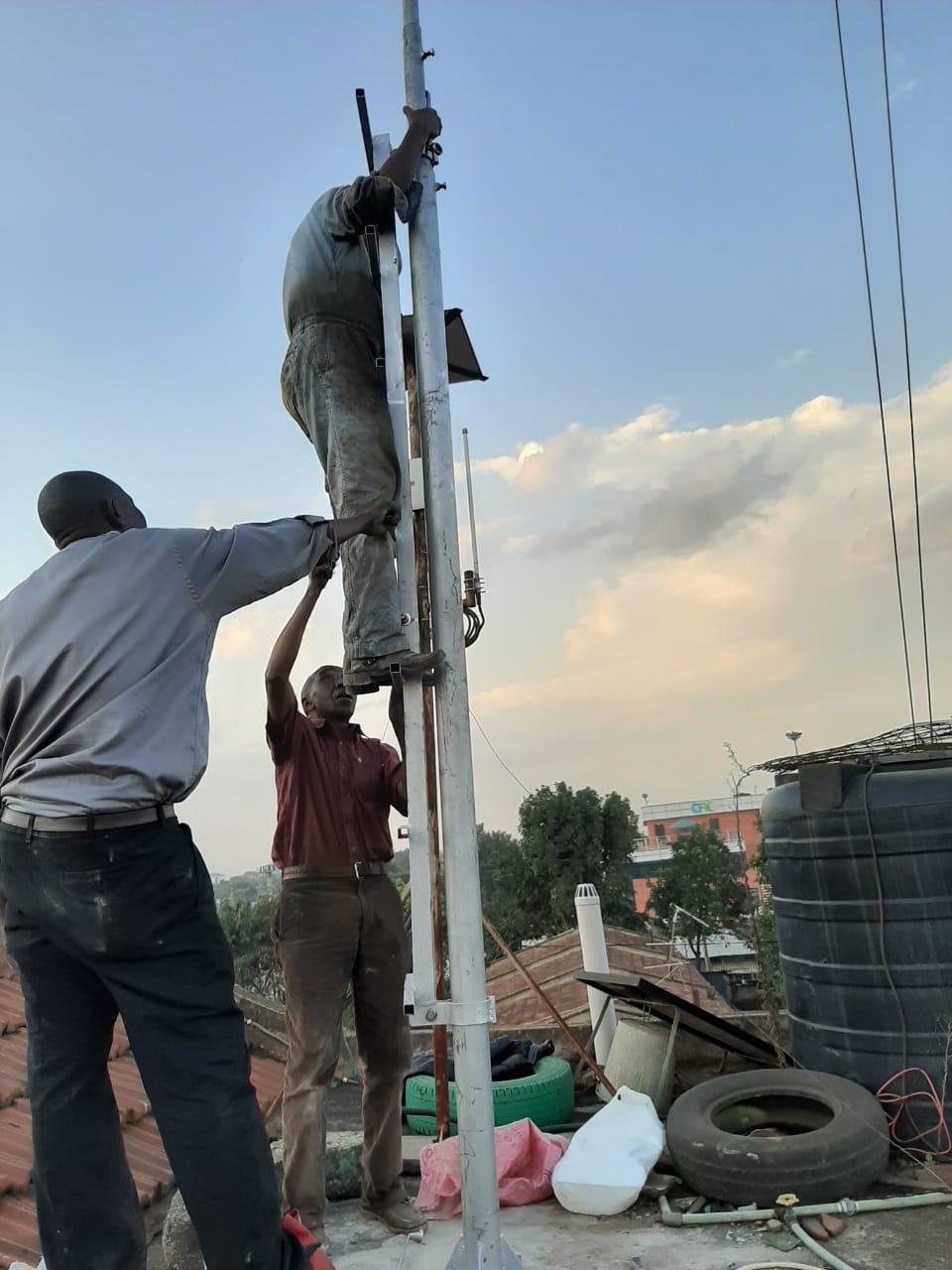By Nzambi Kakusu.
KICTANET was the local host of the community network learning grants’ five day global inception meeting that was organized by Association for Progressive Communications (APC) from 30th April to 3rd May 2019 in Kenya. The main agenda was to kick off the community network learning grant initiatives with the selected 12 community networks from all over the world, and to understand the overall project and how the implementation components fit together.
The 12 community networks present in the workshop are based in Africa, South America and Asia. They are; Zenzeleni (South Africa), Pamoja Net (DRC), Altermundi (Argentina), Common Room (Indonesia), CYD (Malawi), IBE Brasil (Brazil), Coolab (Brazil), BOSCO (Uganda), Asorcom (Myanmar), Janastu (India) colnado (Columbia) and Gram Marg (India). The different community networks showcased their initiatives to the peers. There were several similarities which cut across them from the services each is offering to the challenge of devising sustainable models for the networks.
Community networks are internet networks run by the local communities, for the benefit of the locals.
Community networks are internet networks run by the local communities, for the benefit of the locals. Partnerships with Universities or Cooperatives is important for the support of the community networks since some of the community networks are involved in building the local curriculum for education.
Community networks should involve the indigenous people as they need to be actively involved since they know their communities best and also some projects require people to come in as volunteers.
Community networks are actively involved in capacity building by equipping the youth with skills through training and mentorship.
Creating local content helps to generate income for community network projects. Some community networks also generate revenue through social entrepreneurship projects by creating solutions to the problems in the community.
The most recurring challenges for community networks is lack of alternative sources of energy apart from solar energy since most community networks are remotely situated. The possible solution is to acquire alternative sources of energy like solar or community based hydro electricity.
Sustainability of the community networks is another major problem which can be solved by creating sustainable business models through local crafts and production. From the 12 communities present, 4 were from Africa. They were;
BOSCO (Uganda) is a private, non-profit effort to put wireless internet and VoIP telephony in Northern Uganda, including connecting internally displaced persons. BOSCO is managed by the Archdiocese of Gulu. BOSCO stands for Battery Operated Systems for Community.
Zenzeleni (South Africa). Zenzeleni means “do it yourself” in Xhosa, the Easter Cape’s most prevalent language – is South Africa’s Internet Service Provider (ISP) that’s owned and run by a rural cooperative. It installs and maintains telecommunications infrastructure and also sells telecommunication services like voice and data just like other ISP’s.
Pamoja Net (DRC) which is a mesh Wi-Fi network on the island of Idjwi in Kivu, Democratic Republic of Congo. Ensemble- Pour La Difference, a not-for-profit organization that has deployed the network in collaboration with Fjord, an innovation consultancy based in the United Kingdom. The network has provided internet access to 10,000 Congolese people through a public display system and Wi-Fi access points since May 2016.
CYD (Malawi). Centre for Youth Development is a local child, youth and women-focused community network which exists to create a platform where the youth can address issues that affect them through empowering them with skills and knowledge. CYD facilitates the development projects through partnering with community organizations, youth organizations, schools, policy makers and funders to create programs and advocate for policies that encourage and enable positive and sustainable development.
Nzambi Kakusu is a diploma in IT graduate from Jomo Kenyatta University of Agriculture and Technology. She is passionate about community development and the use of tech to solve problems in the community.




